It is always important to know how to recover effectively after a workout just as it is important to know how to workout. Regardless of whether a person is a professional sportsperson or just a fitness freak, the type and timing of the post-workout meal can play a tremendously differentiating role.
Correct nourishment allows for energy stores, muscles, and muscle soreness to be replenished and repaired respectively. In this guide, learn about the significance of proper nutrition after your workout, foods to eat, and simple strategies to enhance your recovery.
Why You Should Eat Post-Workout
Post workout state can be regarded as the recovery process that occurs after exercise and during which your body rebuilds microscopic muscle fibers and restores glycogen. Ensuring you feed the body appropriately affords it this process and eating right means just that.
The Basics Benefits of Eating after Exercising
- Restore Glycogen Levels: During exercise, your body relies on glycogen as its principal store of fuel. In this capacity, post-workout meals help to replace these depleted energy reserves.
- Repair Muscle Tissue: Consuming protein after a workout helps in the muscle remodeling process since the body is damaged during workouts.
- Reduce Muscle Soreness: Eating healthy foods that do not cause inflammation has been proven to reduce pain and muscle soreness hence promoting muscle recovery.
- Boost Performance: It would therefore be advisable to take the right nutrients after a particular workout exercise to prepare the body for a better performance in the next workout session.
Advantages of Eating After Workout
Enhanced Recovery
This causes muscles to receive the nutrients they require for quickening the process of healing.
Improved Muscle Growth
Amino acid, found particularly in high protein diet, is crucial for muscle protein synthesis, which is a process that surrounds muscle tissue.
Reduced Fatigue
It wakes you up to correlate as refueling the body with carbohydrates and water fights fatigue.
Better Immune Function
Exercise may weaken immune systems, in particular, this only lasts for a short time and healthy eating of foods rich in nutrients will help.
Example
Research presented in the Journal of the International Society of Sports Nutrition has pointed out that the intake of carbohydrates and protein in the two hours after exercise enhances muscle recovery and performance.
What Your Post-Workout Meal Should Include
Your post-workout meal should, therefore, consist of the correct ratio of macronutrients and vital vitamins to support recovery.
Macronutrients to Focus On
- Protein: Promotes the healing of muscles and their development. Ideally, try to consume 20-30g of a highly bioavailable protein.
- Carbohydrates: Replenishes glycogen stores. Opt for high-quality carbs such as; While opting for your carbohydrate intake Ensure that they are complex carbohydrate foods such as Sweet potatoes, Quinoa among others.
- Fats: Not a major emphasis, yet the inclusion of fats is crucial due to the role that such nutrients play in the absorption of other nutrients.
Micronutrients
- Electrolytes: Sodium, potassium, and magnesium as the list of medications indicates are used to correct electrolyte imbalances.
- Antioxidants: Two goals that would benefit from harnessing the power of this technology are: regulates inflammation; and lowers oxidative stress.
Post-workout meal timing: when is the right time to eat?
It is significant to note that the timing of the post-workout meal is vital in the process of recuperation. Taking the right nutrition at the right time makes sure that the body gets the nutrition it requires for repair and energy.
The Timing of Your Post-Workout Meal Matters
- Immediate Nutrition: Within 30 minutes after exercise, consume a small snack or a protein shake.
- Main Meal: Subsequently, have a balanced meal within the next couple of hours to also cement the repair phase.
Tip
If a full meal is not feasible at the moment, grab a banana or a protein bar to help you over the next meal.
15 Best Foods for Post-Workout Recovery
Your choice of post-workout foods depends on the time of day you exercise. Below, we’ve categorized the best options based on morning, lunchtime, and evening workouts.
5 Meals If You Exercise in the Morning
Greek yogurt with berries and granola
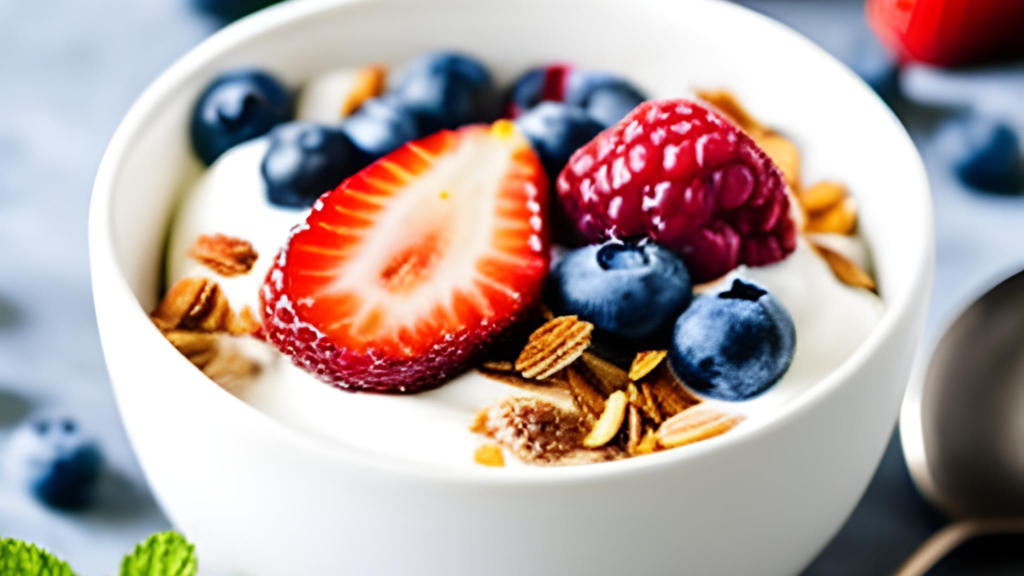
Essentially, having Greek yogurt with fresh berries and tossing some granola over it is best served in the mornings after a strict workout. The combination is rich in protein, which is needed to build muscles and repair them after periods of rigorous exercise regimes like this one. All the berries are full of antioxidants which can soothe muscles inflamed because of intense exercise, granola contains complex carbohydrate that ensures optimal energy replenishment.
Scrambled Eggs with Whole-Grain Toast
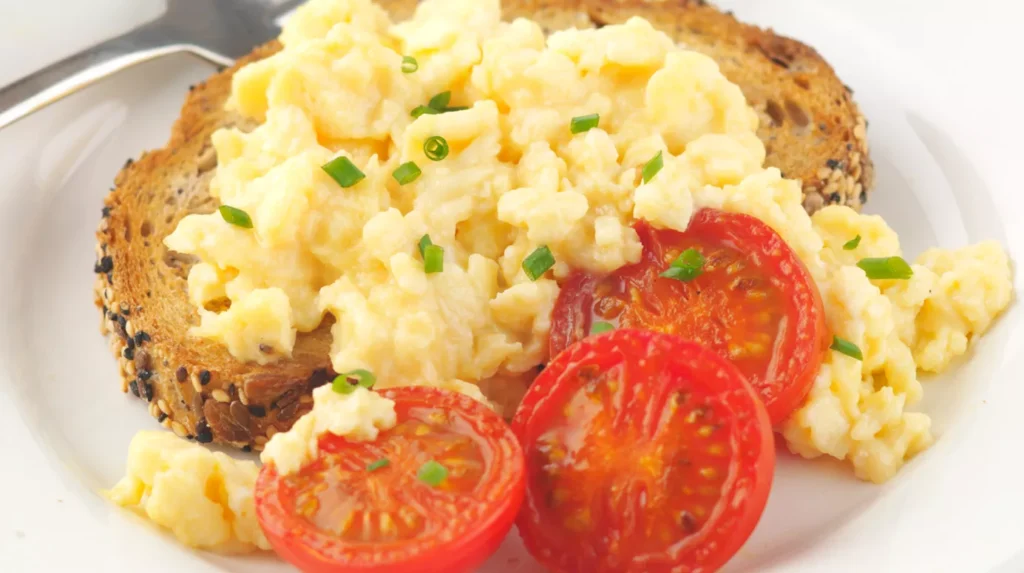
Scrambled eggs are the best quality protein, and whole grain toast are complex carbohydrates, necessary to replenish glycogen in the body. A serving of avocado or several spoonfuls of spinach stirred into this preparation will enhance the nutrient density of this breakfast greatly.
Protein Shake with Spinach and Banana
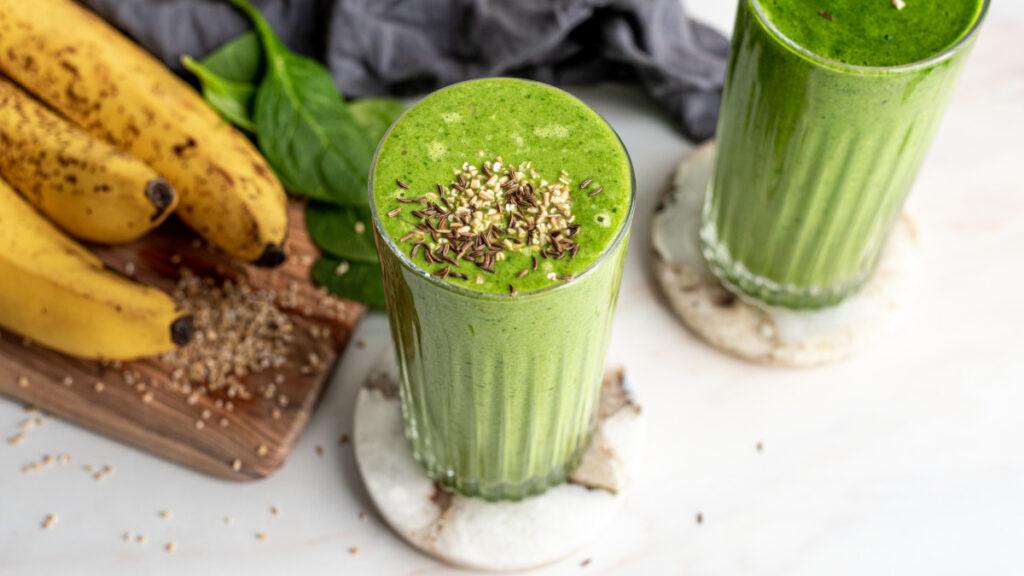
The following is a simple and easy-to-prepare nutrient-rich blend perfect for someone on the go: Protein powder helps you achieve your requirement of protein intake after the workout session, and spinach provides necessary vitamins and minerals. Bananas are tasty and contain potassium which can work as an electrolyte, so this product will be great for refreshing during training.
Oatmeal with almond butter and chia seeds.
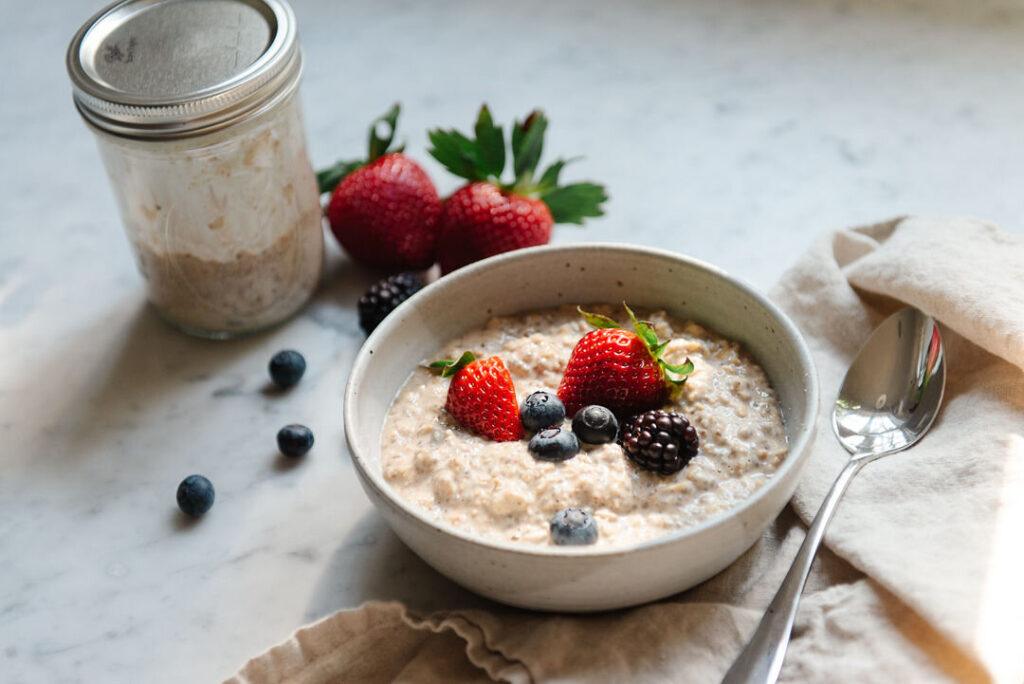
Oatmeal, almond butter, chia seed: pairing them together sounds simple yet nourishing after a workout! Oats give slow-release carbohydrates, while almond butter offers beneficial fats, and chia seeds give fiber and protein, so it’s a balanced meal.
Avocado Toast with a Poached Egg
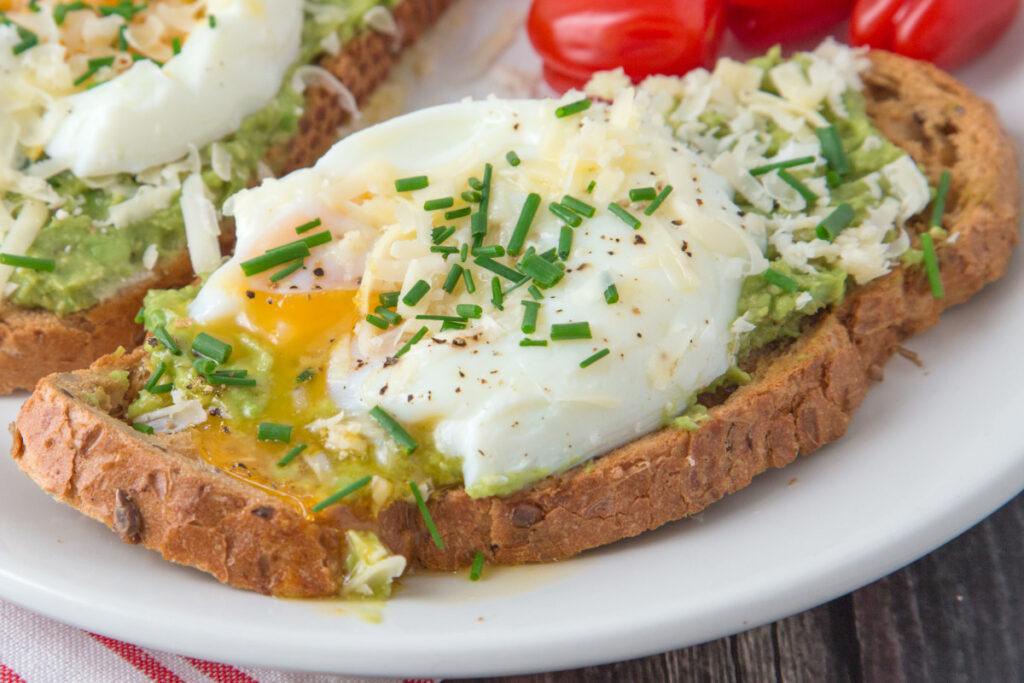
A stack of avocado toast with a poached egg gives perfect sources of healthy fats, protein as well as carbohydrates after workouts. Avocado has good fats that enhance the absorption of other nutrients while the egg offers muscle recovery nutrients. Whole-grain bread makes sure that you are always releasing energy in the body.
5 Meals for a Lunchtime Workout
Grilled Chicken Salad with Quinoa and Veggies
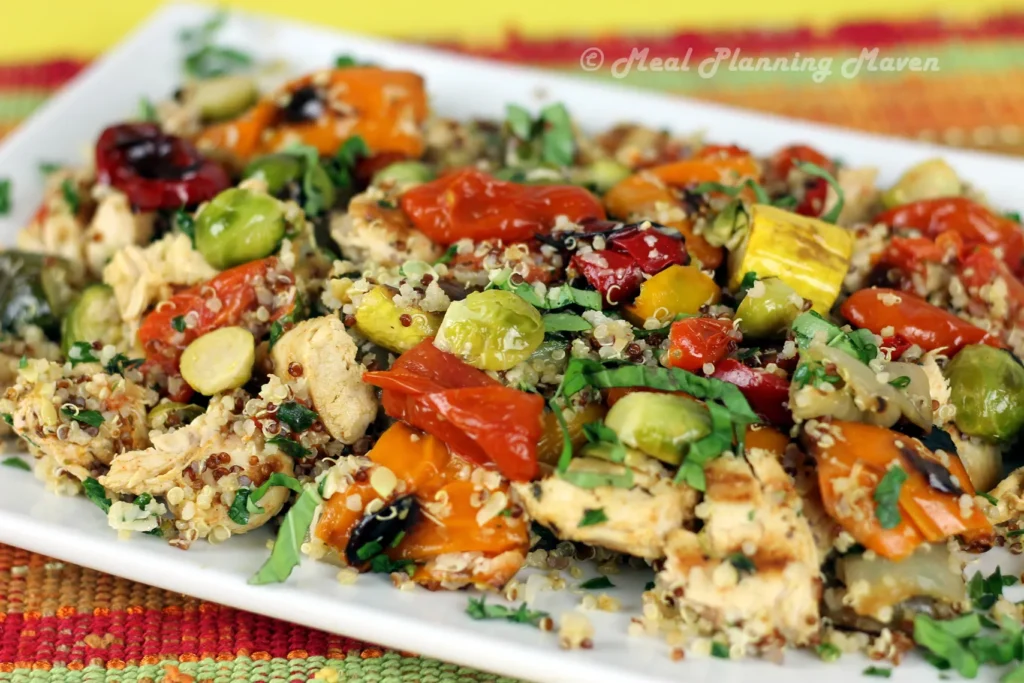
Grilled chicken salad with quinoa and the combination of colorful vegetables are packed with nutrients that add well to any lunchtime recovery. The chicken will give the lean protein, quinoa contains carbohydrates and amino acids, and finally, the vegetables will contribute fiber and antioxidants.
Turkey and Avocado Wrap
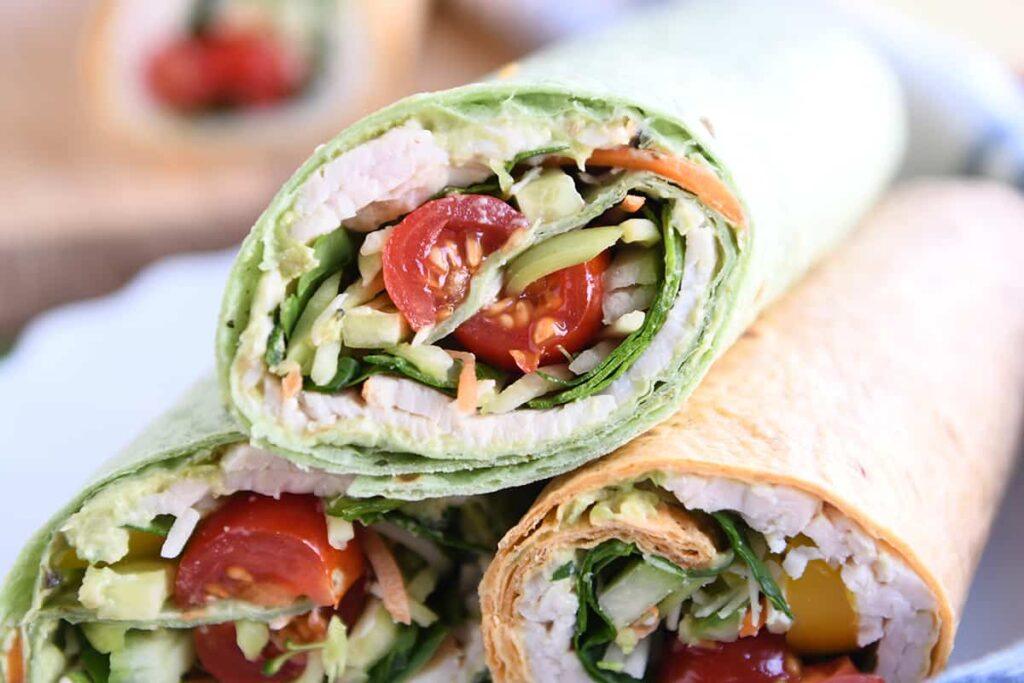
A turkey and avocado wrap is easy to make and it is healthy to boot. Turkey is an important source of lean protein allowing the muscles to be repaired while avocado forms part of the unsaturated fats. Incorporating it in a whole-grain tortilla makes sure that you have the energy to replenish glycogen.
Brown Rice Bowl with Salmon and Steamed Broccoli
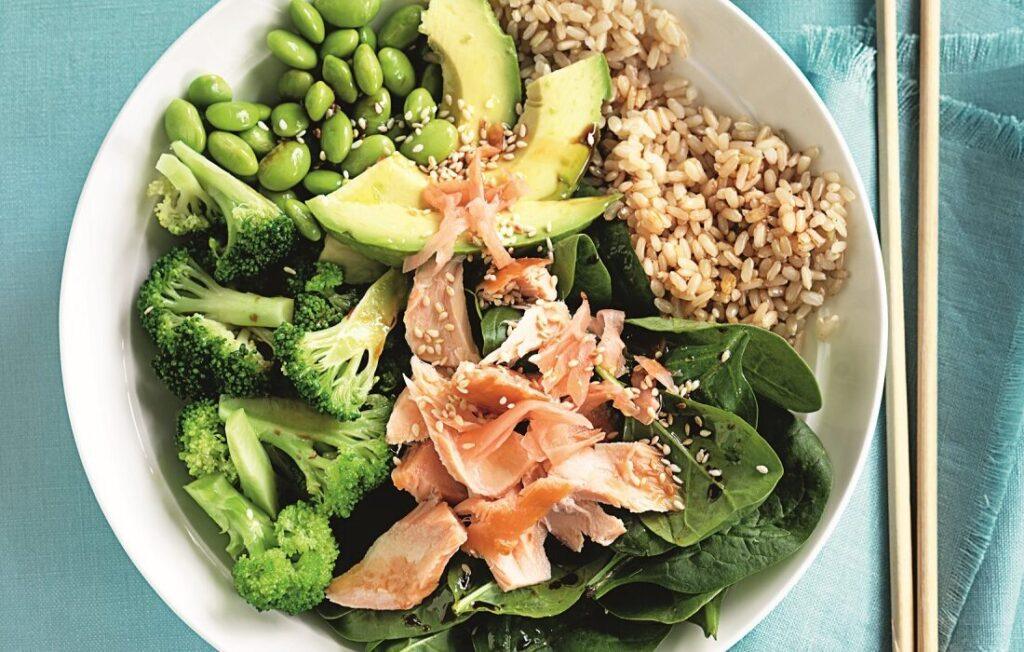
This is an Inflammatory busting nutritionally dense balanced meal consisting of salmon for omega-3 fatty acids, brown rice for energy, and broccoli for nutrient density. Combined with the food they offer, they prepare excellent nutrition that will help to recover and invigorate the organism.
Hummus and Veggie Wrap with a Side of Greek Yogurt
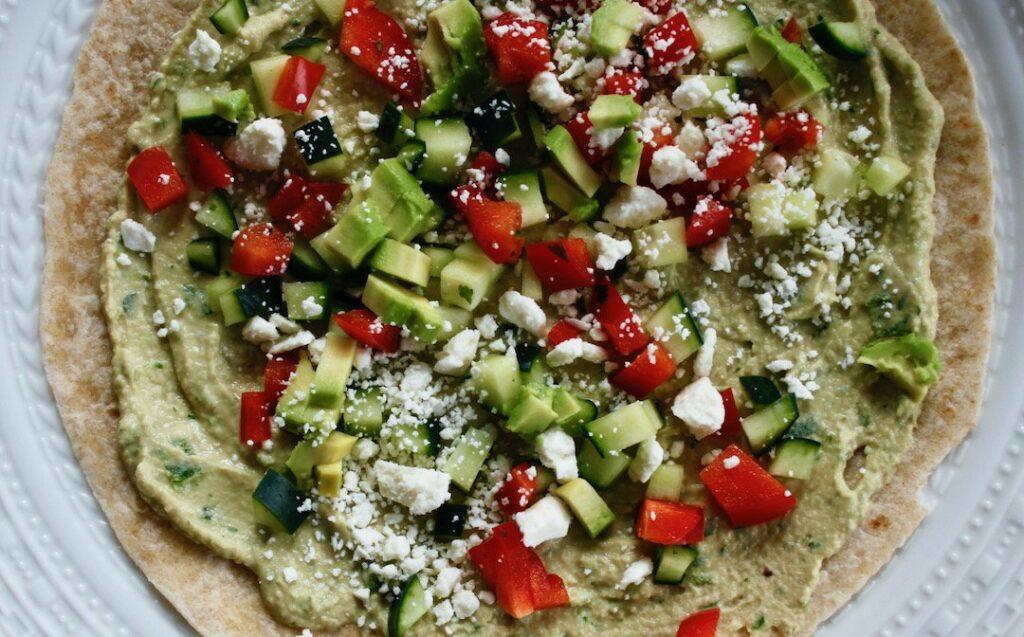
A plant-based option, this meal combines hummus, a source of plant protein, with crunchy veggies like carrots and cucumbers. Pairing it with Greek yogurt ensures you’re getting a dose of probiotics and additional protein.
Lentil Soup with Whole-Grain Bread
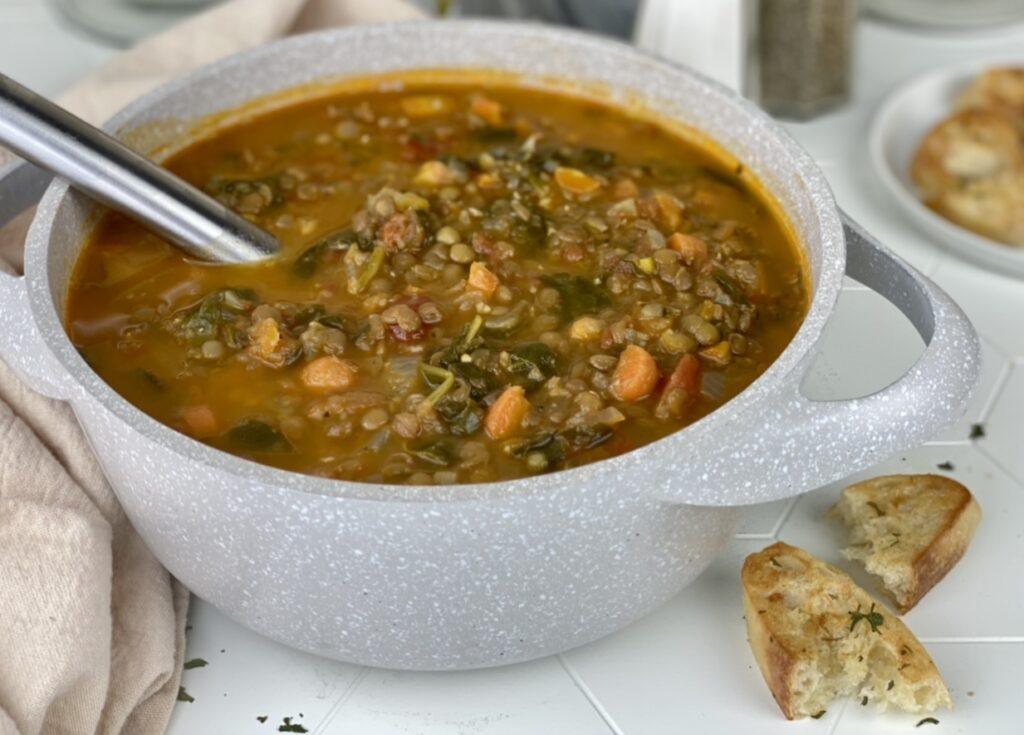
A comforting bowl of lentil soup is not only rich in protein and fiber but also provides a variety of vitamins and minerals. Adding a slice of whole-grain bread ensures you have enough carbohydrates to support glycogen replenishment.
5 Post-Workout Dinner Ideas
Baked Salmon with Sweet Potato and Asparagus

This meal is a powerhouse of recovery nutrition. Baked salmon is an excellent source of high-quality protein and omega-3 fatty acids, sweet potato offers complex carbohydrates for energy, and asparagus provides vitamins and antioxidants.
Grilled Chicken Breast with Quinoa and Spinach
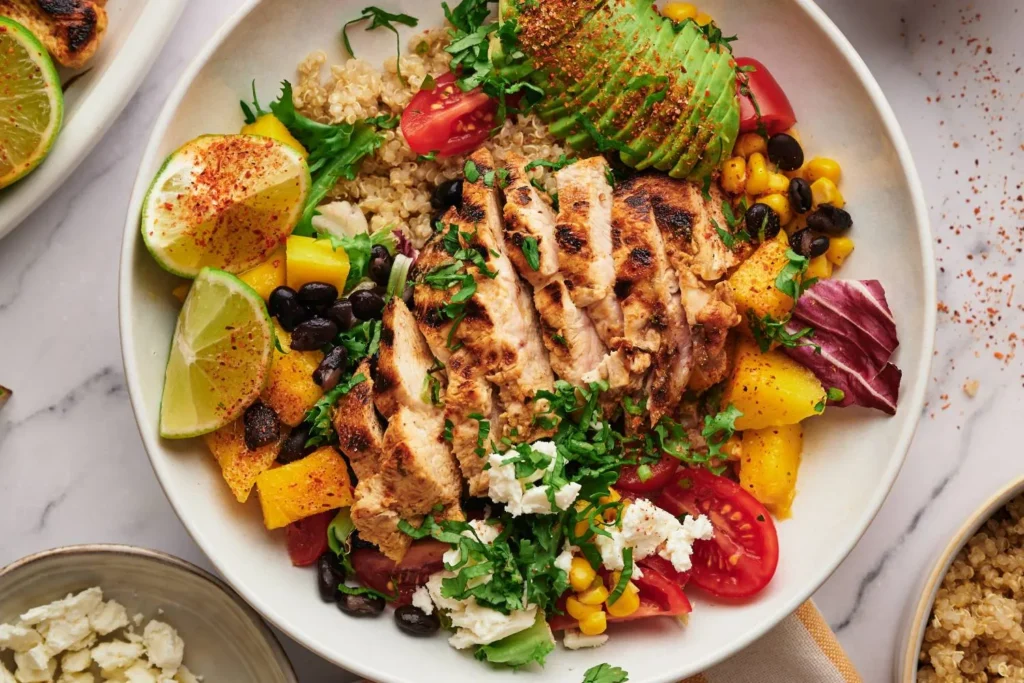
A classic post-workout dinner, grilled chicken breast is packed with lean protein, while quinoa provides a complete amino acid profile. Spinach adds a boost of iron and other essential nutrients to support recovery.
Beef Stir-Fry with Brown Rice and Mixed Vegetables
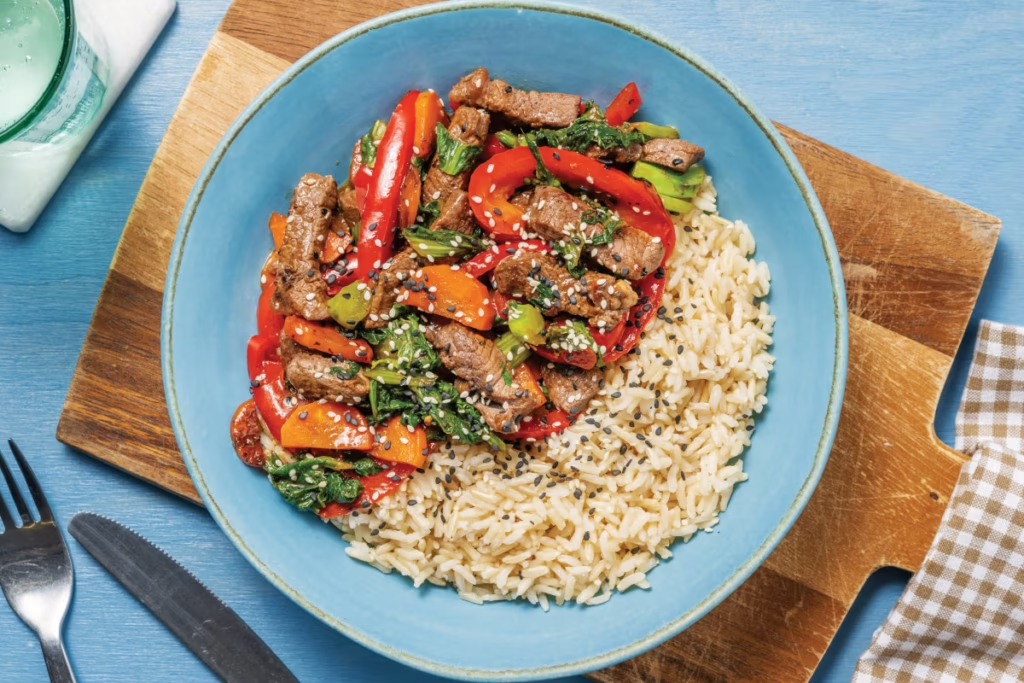
This meal combines lean beef, which is rich in protein and iron, with brown rice and a colorful mix of vegetables. It’s a hearty, nutrient-dense option that promotes muscle repair and replenishes energy.
Tofu and Vegetable Curry with Whole-Grain Rice

A plant-based option, tofu is a great source of protein, and the curry spices often include anti-inflammatory ingredients like turmeric. Pairing it with whole-grain rice ensures you have sufficient carbohydrates for recovery.
Oven-baked cod with Roasted Brussels Sprouts and Mashed Potatoes
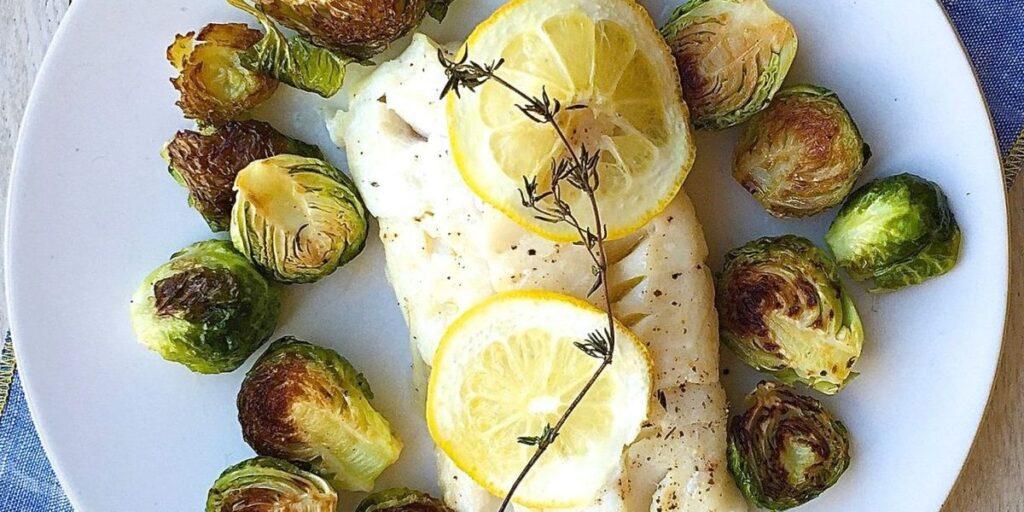
Cod is a light, protein-rich fish that pairs well with roasted Brussels sprouts, which are high in antioxidants. Mashed potatoes provide carbohydrates to round out this recovery-friendly dinner.
Make Sure to Drink Plenty of Water
Hydration is a crucial part of post-workout recovery. Water helps:
- Replenish fluids lost through sweat.
- Support digestion and nutrient absorption.
- Maintain optimal muscle function.
Tip
Add electrolytes to your water if you have a particularly intense workout.
Foods to Avoid After Working Out
Certain foods can hinder recovery by causing inflammation or slowing nutrient absorption.
Examples of Foods to Avoid
- Sugary Snacks: They provide empty calories with no nutritional benefit.
- Fried Foods: High in unhealthy fats that slow digestion.
- Alcohol: Dehydrates the body and impairs muscle recovery.
- Carbonated Beverages: May cause bloating and discomfort.
- Processed Foods: Low in nutrients and often high in sodium.
Other Muscle Recovery Tips
In addition to eating the right foods, these tips can enhance your recovery process:
- Prioritize Sleep: Aim for 7-9 hours of quality sleep each night.
- Incorporate Stretching: Stretching post-workout helps reduce muscle tension.
- Use Foam Rollers: Eases muscle soreness and improves circulation.
- Take Rest Days: Allow your body to recover fully between intense workouts.
- Consider Supplements: Creatine, BCAAs, or collagen can support recovery, but consult a healthcare provider before use.
Frequently Asked Questions (FAQs)
How soon after working out should I eat?
For optimal recovery, eat within 30 minutes to 2 hours after your workout.
Can I skip eating after a workout if I’m not hungry?
It’s best not to skip your post-workout meal. Even a small snack can provide the nutrients your body needs for recovery.
Is protein powder necessary for post-workout recovery?
No, but it’s a convenient way to meet your protein needs, especially if you struggle to get enough from whole foods.
Can I eat a regular meal instead of a specific post-workout snack?
Yes, as long as it contains the necessary macronutrients for recovery.
How much water should I drink after exercising?
Aim for at least 16-24 ounces of water immediately after your workout. Adjust based on sweat loss and workout intensity.
Conclusion
Post-workout nutrition plays a vital role in recovery, performance, and overall health. By incorporating nutrient-dense foods and following the tips outlined in this guide, you can maximize the benefits of your workouts and support long-term fitness goals.
Remember, consistency is key, and small, informed choices can lead to significant improvements over time.
